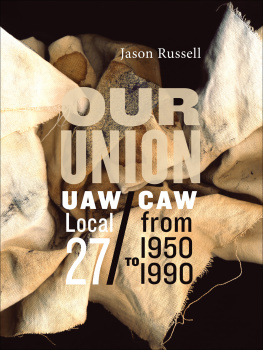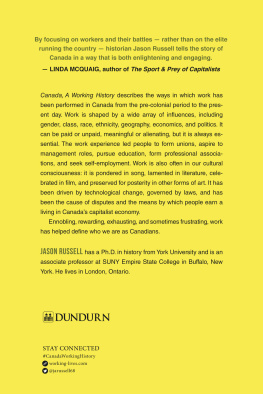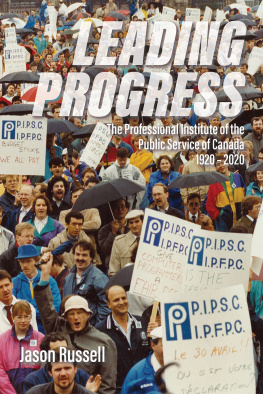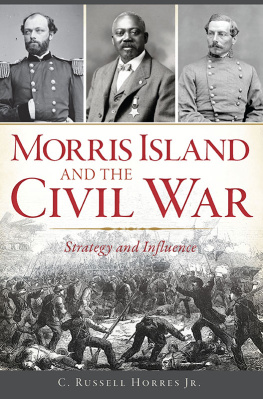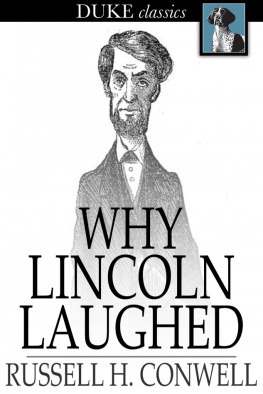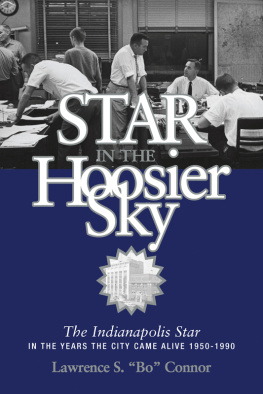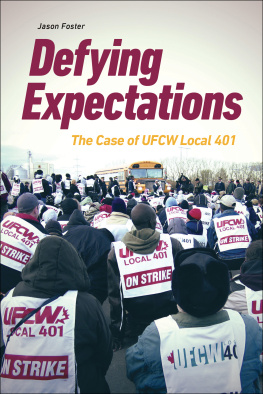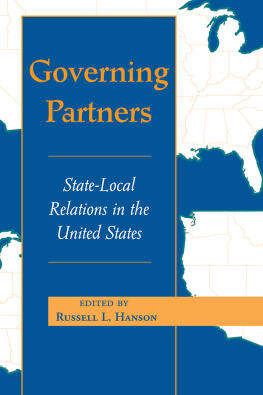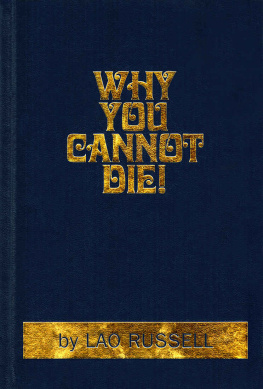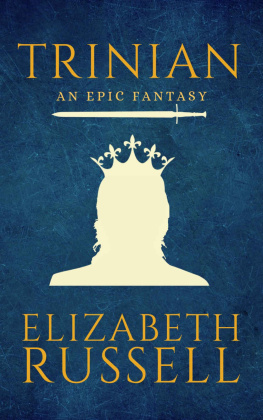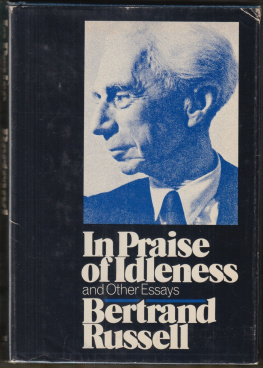OUR UNION
Fabriks: Studies in the Working Class
Series editors: Ingo Schmidt and Jeff Taylor
Capital is dead labor.
KARL MARX
Fabriks: Studies in the Working Class provides a broad-based forum for labour studies research. Of particular interest are works that challenge familiar national and institutional narratives, focusing instead on gender-based, occupational, racial, and regional divisions among workers and on strategies for fostering working-class solidarity. The series also seeks to resurrect both social class analysis and the view of labour movements as a potentially liberating social force. It invites contributions not only from labour historians but from industrial relations scholars, political scientists, economists, sociologists and social movement theorists, and anyone else whose concerns lie with the history and organization of labour, its philosophical underpinnings, and the struggle for economic and social justice.
The Political Economy of Workplace Injury in Canada
BOB BARNETSON
Our Union: UAW/CAW Local 27 from 1950 to 1990
JASON RUSSELL
OUR UNION
UAW/CAW LOCAL 27 FROM 1950 TO 1990
Jason Russell
Copyright 2011 Jason Russell
Published by AU Press, Athabasca University
1200, 10011 109 Street, Edmonton, AB T5J 3S6
ISBN 978-1-926836-43-0 (print) 978-1-926836-44-7 (PDF) 978-1-926836-45-4 (epub)
A volume in Fabriks: Studies in the Working Class:
ISSN 1925-6477 (print) 1925-6485 (digital)
Cover and interior design by Natalie Olsen, Kisscut Design.
Printed and bound in Canada by Marquis Book Printers.
LIBRARY AND ARCHIVES CANADA CATALOGUING IN PUBLICATION
Russell, Jason, 1968
Our union : UAW/CAW Local 27 from 19501990 / Jason Russell.
(Fabriks : studies in the working class, ISSN 1925-6477)
Includes bibliographical references.
Issued also in electronic format.
ISBN 978-1-926836-43-0
1. CAW-Canada. Local 27History. 2. International Union, United Automobile, Aerospace and Agricultural Implement Workers of America. Canadian RegionHistory. 3. Labor unionsOntarioLondonHistory. 4. Labor union localsOntarioLondonHistory. 5. Labor union localsSocial aspectsOntarioLondon. 6. Automobile industry workers Labor unionsCanadaHistory20th century. I. Title. II. Series: Fabriks : studies in the working class
HD6528.A82C385 2011 331.8812920971326 C2011-905716-6
We acknowledge the financial support of the Government of Canada through the Canada Book Fund (CBF) for our publishing activities.
Assistance provided by the Government of Alberta,
Alberta Multimedia Development Fund.
Please contact AU Press, Athabasca University at aupress@athabascau.ca for permissions and copyright information.
CONTENTS
TABLES
ILLUSTRATIONS
ACKNOWLEDGEMENTS
This book originated as my doctoral dissertation, which I completed in the Graduate Program in History at York University. While my status as a part-time student at York meant that I was always on the periphery of the stimulating and dynamic atmosphere of that program, I was fortunate to have benefited from crucial intellectual links with a small group of fellow Canadian history students and with other members of the Toronto Labour Studies Group. I am particularly grateful for my connection with Jenny Carson, Cindy Loch-Drake, Todd Stubbs, Susana Miranda, and Nathan Smith. Over the past eight years, we have all either moved through our dissertation research or into the academy as faculty, and I have been inspired by their dedication and support. I was also fortunate to have had supportive colleagues beyond the Canadian labour history community. I particularly wish to acknowledge my colleagues at Empire State College, who have helped ease me into life as a full-time faculty member, with special thanks to Roger Keeran, my MA supervisor, who has become a very supportive colleague.
I also wish to thank the members of my dissertation committee. Kathryn McPherson and Paul Craven provided excellent guidance and were unfailingly patient from the moment I first approached them. I am grateful as well to Carolyn Podruchny, Sam Gindin, Peter McInnis, and Mark Thomas, who also sat on my examining committee. Above all, without Craig Heron, my dissertation supervisor, none of this would have been possible. I owe him intellectual debts that cannot be repaid. He has been a great mentor.
I also owe a debt of gratitude to the past and present members of UAW/CAW Local 27, especially all those who agreed to interviews. The memories and insights of activists like Julie White, Roland Parris, Hector McLellan, Bob Nickerson, and Al Seymour, among others, enabled me to add nuance and depth to my analysis. Roland was always an enthusiastic supporter of my work, and I only wish hed lived to see this book published. I am especially grateful to Tim Carrie and Jim Wilkes, who provided much-needed help with accessing Local 27s records, as well as to the staff of the Archive of Labour and Urban Affairs at Wayne State University, the Archives of Ontario, the Archives and Research Collection Centre at the University of Western Ontario, and Library and Archives Canada. In particular, I thank Kathy Bennett, at the CAW national office, for helping me locate CAW archival documents at Library and Archives Canada. I am grateful to Alvin Finkel, a friend and colleague at Athabasca University, both for his encouragement and for his valuable comments on my work, and to Walter Hildebrandt, Pamela MacFarland Holway, and all the staff at Athabasca University Press.
My grandparents George Alexander (Alec) Russell, Norma Russell, William Dalton (Mike) Rapsey, and Muriel Rapsey were often in my thoughts as I researched and wrote this book. Alec and Norma raised five children, and Alec often worked two jobs, despite suffering from poor health. Mike was a long-time member of the United Auto Workers. He and Muriel had two children and understood very well the impact that a local union had on their lives. Alec and Mike were also steadfast social democrats.
Both of my grandfathers served in the Canadian Army in World War II, and Muriel was an English war bride. Alec died at a relatively young age, but Norma is still with us. Mike and Muriel passed away after years of hard work and a peaceful retirement. My grandparents worked extremely hard to provide for their children and grandchildren. I think they would be gratified to know how much their lives inspired me to learn more about what a local union did for its workers. I also wish to thank my parents, Tom Russell and Trudy Warren, who have been unfailingly supportive of my academic work. So has Laura Liepins, my wife. Even in moments when I despaired of ever completing my PhD, Laura always believed in me. Finally, I thank my son, Thomas Russell, who is always my greatest inspiration. This book is ultimately for him. Alec, Norma, Mike, and Muriel would have wanted it that way.
OUR UNION
INTRODUCTION
LOCAL UNIONS IN THE POSTWORLD WAR II DECADES




